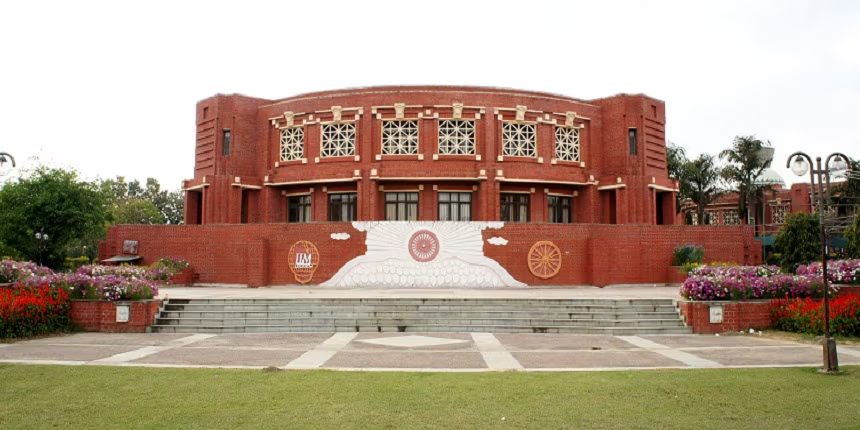An RTI response reveals that out of 103 faculty positions, a staggering 88 are filled by candidates from the general category
Team Clarion
LUCKNOW – The Indian Institute of Management (IIM) Lucknow has faced significant backlash for not following mandatory reservation policies in faculty appointments. This comes to light after a recent Right to Information (RTI) response revealed stark disparities in the representation of OBC, SC, ST, and EWS candidates within the institution.
The RTI application, filed by Gaur Kiran Kumar, the national president of the All India OBC Students Association (AIOBCSA), highlights that out of 103 faculty positions at IIM Lucknow, a staggering 88 are filled by candidates from the general category. The breakdown is: General Category 88 (85.43%): OBC 3 (2.9%), SC 2 (1.9%), ST 0 (0%), and EWS 0. In addition, several positions remain unfilled, worsening the existing inequalities: OBC 1, SC 1, ST 2 and General 6.
These statistics paint a troubling picture of the faculty composition at IIM Lucknow, raising serious concerns about its commitment to diversity and inclusion.
In an interview with The Mooknayak online news channel, Kumar expressed his dismay, stating, “My recent RTI activism regarding diversity and inclusion in IITs and IIMs has uncovered concerning information. The significant lack of diversity and inclusion in these premier institutions is absolutely unacceptable.” He further emphasised the need for better representation, saying, “There should be improvements in the representation of SC, ST, and OBC communities in IITs and IIMs to comply with constitutional provisions and promote greater inclusion and diversity.”
Kumar also mentioned that he has sought similar information from around ten IITs and IIMs, with more responses pending. “We have already raised this issue before the Union Education Minister Dharmendra Pradhan. The government must take immediate corrective steps to enhance diversity and inclusion in these institutions. Leaders of opposition parties should also raise this issue in Parliament. Otherwise, we will protest democratically against this injustice,” he warned.
IIM Lucknow is not alone in facing these issues. Recent RTI findings have revealed alarming shortcomings in faculty recruitment at IIM Indore and IIM Tiruchirappalli as well. At IIM Indore, of the 150 sanctioned faculty positions, 41 are vacant, with no appointments made in the SC and ST categories and only two from the OBC category. Furthermore, only one faculty member has been recruited in the EWS category.
The situation at IIM Tiruchirappalli is even more alarming, with 83.33% of OBC, 86.66% of SC, and 100% of ST faculty positions remaining unfilled, while all general category positions are occupied. This paints a grim picture of exclusion in India’s premier management institutions.
The revelations have ignited outrage among civil groups and student organisations, who decry the blatant violations of social justice principles. Social justice activist Anil Waghade voiced his concerns, stating that the underrepresentation of marginalised communities in faculty positions undermines the educational aspirations of these historically disadvantaged groups. He pointed out that the reluctance to appoint faculty from OBC, SC, and ST categories reflects a systemic issue of caste discrimination in academic institutions.
Bhim Army chief Chandrashekhar Azad, also an MP from Nagina, expressed grave concern over the ongoing hurdles in the recruitment of reserved faculty positions across various Indian management institutes. He labelled it a gross violation of the rights of marginalised communities. “This is an appropriation of constitutional rights and a plunder of the reservation system established to uplift the exploited and deprived sections of society,” Azad said, urging the Supreme Court to take notice of this “unconstitutional classification” in the recruitment process for reserved positions. He also called on Education Minister Pradhan to uphold the constitutionally mandated reservations, despite concerns about his commitment to social justice principles.
The lack of diversity among faculty at IIMs poses significant implications for the quality of education and the representation of diverse perspectives in management studies. Affirmative action policies were intended to bridge socio-economic divides, but the persistent exclusion of marginalised communities signals an urgent need for reform.
It is crucial for IIMs to address these disparities and ensure institutional accountability. As premier institutions, they are expected to lead in promoting inclusion and equal opportunity, yet the stark reality of the statistics raises serious questions about their commitment to these ideals.

